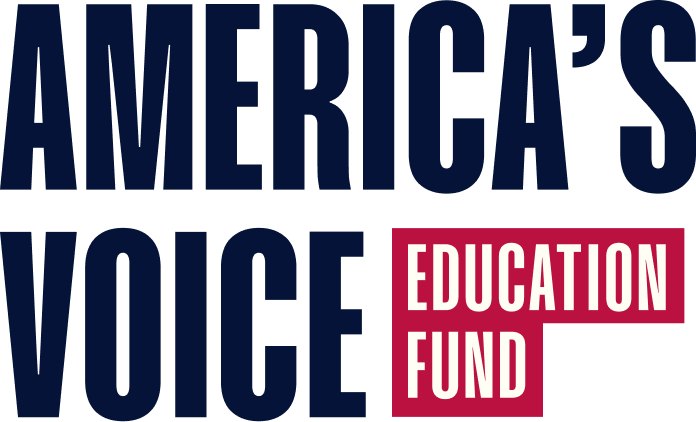Catholic Moms Launch Letter-Writing Campaign Urging U.S. Bishops to Advocate For Immigrant Neighbors
Florida mom Heidy Sanchez Tejeda was simply following the rules by going to what she thought was a routine immigration check-in back in April when she was suddenly taken into custody and told that she would be deported back to Cuba within hours. Making the matter even more excruciating was that Sanchez Tejeda had her two-year-old child with her at the time.
“But Sanchez Tejeda says ICE did not give her any choice in what would happen to her baby and instead, ordered the girl to stay behind in Florida with her father,” Scripps News reported the following month. “Two days later, Sanchez Tejeda was flown in handcuffs to Cuba.” The case shook Ohioan Katie Holler, who is the mother of two, including an infant.
“I have a 6-month-old baby. How distressing that would be to me as a mother to be separated from a baby I’m breastfeeding,” she told Jesuit magazine America. “These are vulnerable people, people we as Catholics say we love and want to support, and yet this administration is doing the exact opposite of what our faith demands us to do.”
Angered by the government’s actions and looking for any way she could help make a difference for other immigrant mothers who may be facing separation from their children, Holler recruited other Catholic moms to take part in a letter-writing campaign calling on U.S. bishops to advocate for immigrants who call this country home.
“The group named itself the Dorothea Project, in homage to two Catholic women known for being outspoken for justice: Catholic Worker founder Dorothy Day and Sister Thea Bowman, a Franciscan Sister of Perpetual Adoration who famously called out the U.S. bishops on racism in 1989,” America reported. “Both are on the path to sainthood in the Catholic Church.”
Already the Dorothea Project has written more than 150 letters to nearly 80 bishops as of July 22. One sample letter shared by America asked U.S. bishops to “help lead our local Church in defending the vulnerable and promoting policies that reflect the Gospel as well as Catholic Social Teaching,” noting that Jesus was also a refugee. In his letter to U.S. bishops last February, the late Pope Francis called the Holy Family “emigrants in Egypt and refugees.”
“As a shepherd of the Church, your voice carries moral authority and hope,” continues the sample letter from Dorothea Project. “In light of the Church’s teachings on human dignity, the preferential option for the poor, and the call to welcome the stranger, I believe now is the time for bold and courageous leadership in defense of the marginalized.”
Last month, San Diego Bishop-elect Michael Pham, a former refugee who recently became Pope Leo XIV’s first bishop appointment, was among faith leaders to bear witness and support immigrants at their immigration court hearings on World Refugee Day. While the masked abductions of immigrants trying to follow the rules have been rampant, on this particular day, not one person was detained. Initially, deportation agents were “standing there covered with masks as we walked toward the courtroom,” Bishop-elect Pham said. “Eventually the … agents kind of scattered and went away. No wonder people come in fear.”
And in what have been described as “extraordinary decrees,” several bishops have excused their congregations from the obligation to attend Mass due to immigration raids, including in California, which has been an epicenter of the federal government’s chaotic and unsparing sweeps.
In a July 8 letter, San Bernardino Bishop Alberto Rojas excused parishioners who are afraid to attend mass “due to genuine fear of immigration enforcement actions,” writing that he is “guided by the Church’s mission to care for the spiritual welfare of all entrusted to my care, particularly those who face fear or hardship.” The decision was backed by Sacramento Bishop Jamie Soto, who said that his community stood “with our brothers and sisters in Southern California who are being unfairly harassed by the intimidating, disruptive raids employed by federal agents.”
In May, the Diocese of Nashville appears to be the first to have excused congregants from their obligations, saying that while churches remained open, “no Catholic is obligated to attend Mass on Sunday if doing so puts their safety at risk.” More recently, Archbishop Thomas G. Wenski of Miami has prayed outside the Everglades detention camp in Florida and sought to hold Mass for detained individuals there.
“The Dorothea Project will focus next on parish pastors, encouraging them to take actions of solidarity with immigrants and refugees, Holler said,” America continued. Already, Dorothea Project now boasts nearly 200 members and has potential to continue growing. Porsia Tunzi, professor of theology and religious studies at Saint Mary’s College in California, told America that online spaces have been “especially significant among women who felt ostracized, unsafe and/or not accepted in an in-person church community.”
Like in Holler’s case, advocating for immigrant families is an issue that hits close to home for Mercedes Fratamico. The mom, who is Mexican American, “said the issue of immigration is personal,’” the report continued. “‘I could have been born on the other side of the border. It’s just a matter of luck and circumstances,’ she said. ‘My parents are citizens, but I still have a lot of solidarity with the migrant community.’”
